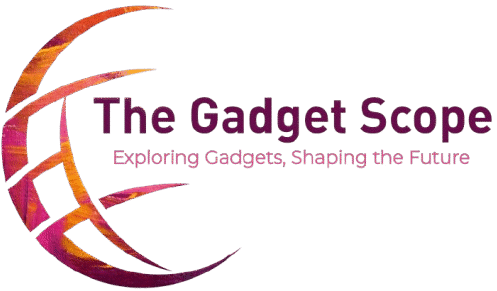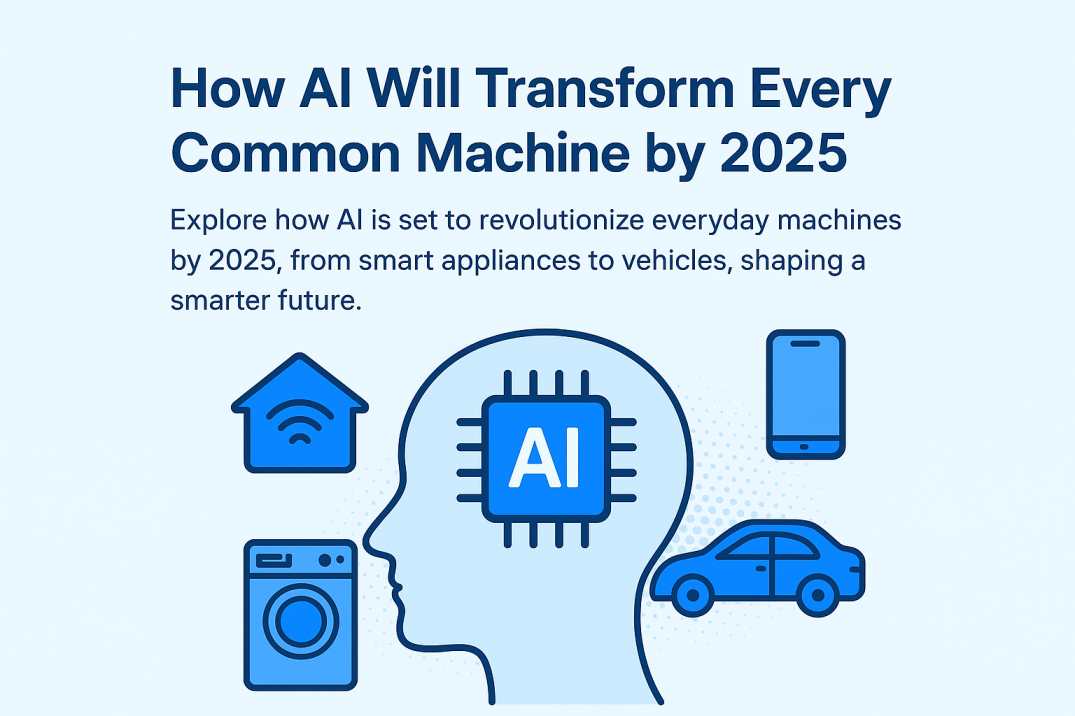AI will change every common machine by 2025.
The concept of Artificial Intelligence (AI) is no longer on the list of things that are characteristic of science fiction movies. AI is now a common element in our daily lives, and especially in the gadgets we interact with. AI is quietly chipping away in the background, working to make things easier, faster, and more enjoyable, starting with smartphones and then moving on to smart speakers. In 2025, more than ever in history, AI is transforming the way we live. Let’s explore how.
AI in Smartphones
Our smartphones are the devices that we use most often, and AI is embedded in them. All the camera improvements, voice assistants, and face recognition are requirements of AI. You can use a simple example, such as taking a photo, and then AI can automatically correct the lighting and focus, making the image appear perfect. AI also powers voice assistants, such as Siri or Google Assistant, which can help you send a text, set a reminder, or even find something on the internet without needing to touch the keyboard.
AI in Smart Homes
One of the capabilities of AI is to make smart homes possible. Google Nest, smart thermostats, and other artificial intelligence devices know your habits, just as Amazon Alexa does. A smart thermostat can be programmed to identify that you prefer a cold room at night and a warm room in the morning. It regulates its own temperature over time. You can turn on the artificial intelligence lights when you enter a room or turn them off when you want to relax. These small innovations are simplifying and enhancing life every day.
AI in Wearables
Smart devices are now AI-enabled, like smartwatches and fitness bracelets. Taking steps is no longer counted. Artificial intelligence can keep track of your sleep, measure your heart rate, and even notify you when it notices something unusual. For example, some smartwatches can detect irregular heartbeats and remind you of a doctor’s appointment. That means AI is not only convenient, but it also helps keep us healthy.
AI in Entertainment
We all listen to music, watch movies, and play games that utilize AI as well. Netflix, YouTube, and Spotify are video and audio streaming services that use AI to recommend shows, videos, and songs based on your preferences. Gaming consoles have reached the point of creating more realistic and engaging game worlds with more realistic characters. Even smart TVs use AI to improve audio and picture quality.
AI and the Future of Gadgets
The future will see even more innovative devices being offered as AI advances. Think of the fact that there might be a phone that can even read your mind and suggest what you should do next, not to mention the fact that it also knows what you want to write. Or smart glasses that read and talk languages like you hear. AI can also be used to help gadgets conserve energy and contribute to a endurable environment.
Final Thoughts
By 2025, AI will be merged into our devices almost everywhere. It makes smartphones, homes, wearables and entertainment smarter, comfortable, handy, and personal. People fear that AI will take over, but the truth about AI is that it is intended to make our lives easier. The use of AI is projected to continue growing in the future, resulting in even more advanced gadgets.

